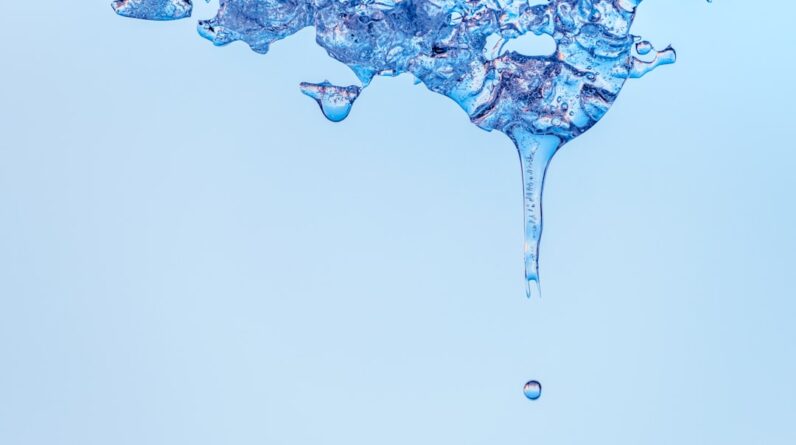
The oceans cover more than 70% of the Earth’s surface, serving as a vital component of our planet’s ecosystem. One of the most critical aspects of ocean health is the presence of oxygen, which is essential for the survival of marine life. You may not realize it, but the oceans are responsible for producing a significant portion of the oxygen we breathe, thanks to phytoplankton and other marine plants.
These microscopic organisms engage in photosynthesis, converting sunlight into energy while releasing oxygen as a byproduct. This process not only sustains marine ecosystems but also plays a crucial role in regulating the Earth’s atmosphere. Understanding the importance of ocean oxygen extends beyond just marine life; it directly impacts human health and well-being.
Healthy oceans contribute to climate regulation, food security, and even economic stability through fisheries and tourism. As you consider the interconnectedness of life on Earth, it becomes clear that maintaining adequate oxygen levels in the oceans is not merely an environmental concern but a fundamental necessity for all living beings. The health of our oceans is intrinsically linked to our own survival, making it imperative that we pay attention to the factors that threaten this precious resource.
Key Takeaways
- Ocean oxygen is crucial for marine life and the overall health of the ocean ecosystem.
- Human activities such as pollution and climate change are leading to a decline in ocean oxygen levels.
- There is an ethical responsibility to protect marine life and ensure a healthy environment for marine organisms.
- International agreements and policies play a key role in marine protection and conservation efforts.
- Balancing economic interests with environmental ethics is essential for safeguarding ocean oxygen and marine life.
The Impact of Human Activities on Ocean Oxygen Levels
Human activities have significantly altered the delicate balance of ocean ecosystems, leading to alarming declines in oxygen levels. One of the primary culprits is nutrient pollution, often resulting from agricultural runoff and wastewater discharge. When excess nutrients, particularly nitrogen and phosphorus, enter the ocean, they stimulate algal blooms that can deplete oxygen levels as they decay.
This phenomenon creates “dead zones,” areas where oxygen is so low that most marine life cannot survive. As you reflect on this issue, consider how your daily choices—such as the products you use or the food you consume—can contribute to this problem. Additionally, climate change poses a severe threat to ocean oxygen levels.
Rising sea temperatures can reduce the solubility of oxygen in water, while increased stratification limits the mixing of oxygen-rich surface waters with deeper layers. As you think about the implications of climate change, it’s essential to recognize that these changes are not distant threats; they are happening now and affecting marine ecosystems worldwide. The consequences of reduced oxygen levels extend beyond fish and other marine organisms; they can disrupt entire food webs and impact human communities that rely on healthy oceans for their livelihoods.
The Ethical Responsibility to Protect Marine Life

As stewards of the planet, you hold an ethical responsibility to protect marine life and ensure that future generations inherit a thriving ocean ecosystem. This responsibility stems from a recognition that all living beings have intrinsic value and play a role in maintaining ecological balance. When you consider the plight of marine species affected by declining oxygen levels, it becomes evident that your actions can have far-reaching consequences.
By advocating for sustainable practices and supporting policies aimed at protecting marine environments, you contribute to a collective effort to safeguard these vital ecosystems. Moreover, your ethical obligation extends beyond mere conservation; it encompasses a commitment to justice for those who are often voiceless in environmental discussions—marine organisms themselves. You may find it easy to overlook the plight of creatures living beneath the waves, but their struggles are real and deserve attention.
By raising awareness about the challenges faced by marine life due to human activities, you can inspire others to take action and foster a sense of shared responsibility for the health of our oceans.
The Rights of Marine Organisms to a Healthy Environment
The concept of rights is often associated with human beings, but it is increasingly recognized that marine organisms also possess rights to a healthy environment. Just as you advocate for your own rights and well-being, it is essential to extend this consideration to all living beings that share our planet. Marine organisms have evolved over millions of years to thrive in specific habitats, and their survival depends on maintaining the delicate balance of their ecosystems.
When you acknowledge their right to a healthy environment, you affirm the interconnectedness of all life forms and recognize that their well-being is intertwined with your own. This perspective challenges you to rethink how society values nature and its inhabitants. It calls for a shift in mindset from viewing nature as a resource to be exploited to recognizing it as a community of beings deserving respect and protection.
By supporting initiatives that promote marine conservation and advocating for policies that prioritize ecosystem health, you can help establish a framework that honors the rights of marine organisms and ensures their continued existence in a rapidly changing world.
The Role of International Agreements and Policies in Marine Protection
International agreements and policies play a crucial role in addressing the challenges facing ocean ecosystems and protecting marine life. As you consider the global nature of ocean health, it becomes clear that collaboration across borders is essential for effective conservation efforts. Treaties such as the United Nations Convention on the Law of the Sea (UNCLOS) provide a legal framework for managing ocean resources and protecting marine environments.
By engaging with these agreements, you can contribute to a collective effort aimed at safeguarding the oceans for future generations. However, while international agreements are vital, their effectiveness often hinges on national implementation and enforcement. You may find it disheartening that many countries struggle to uphold their commitments due to competing economic interests or lack of resources.
This reality underscores the importance of holding governments accountable and advocating for stronger policies that prioritize ocean health over short-term gains. By staying informed about international efforts and supporting organizations working towards marine protection, you can play an active role in shaping policies that benefit both people and marine life.
Balancing Economic Interests with Environmental Ethics

The tension between economic interests and environmental ethics is a complex issue that requires careful consideration. As you navigate this landscape, it’s essential to recognize that healthy oceans are not only vital for marine life but also for sustaining human economies. Fisheries, tourism, and coastal communities depend on vibrant ecosystems for their livelihoods.
When you weigh economic development against environmental protection, consider how investing in sustainable practices can lead to long-term benefits for both people and nature. You may encounter arguments suggesting that prioritizing environmental ethics comes at the expense of economic growth. However, this perspective overlooks the potential for innovation and job creation within sustainable industries.
By supporting initiatives that promote eco-friendly practices—such as sustainable fishing methods or renewable energy sources—you can help bridge the gap between economic interests and environmental stewardship. Embracing this balance not only benefits marine ecosystems but also fosters resilient communities capable of thriving in harmony with nature.
The Moral Imperative of Addressing Climate Change and Ocean Acidification
Climate change represents one of the most pressing challenges facing our oceans today, with far-reaching implications for marine life and ecosystems. As temperatures rise and carbon dioxide levels increase, ocean acidification occurs, threatening coral reefs and shellfish populations essential for biodiversity and human livelihoods. You may feel overwhelmed by the scale of this issue, but recognizing it as a moral imperative can empower you to take action.
Addressing climate change requires collective effort at all levels—individuals, communities, governments, and international organizations must work together to mitigate its impacts on ocean health. You can contribute by reducing your carbon footprint through lifestyle changes such as using public transportation, conserving energy at home, or supporting renewable energy initiatives. By advocating for policies aimed at reducing greenhouse gas emissions and promoting sustainable practices, you can help create a more resilient future for both marine life and humanity.
Individual and Collective Actions to Safeguard Ocean Oxygen
While the challenges facing ocean oxygen levels may seem daunting, individual and collective actions can make a significant difference in safeguarding this vital resource. You have the power to influence change through your choices—whether it’s reducing plastic consumption, supporting sustainable seafood initiatives, or participating in local clean-up efforts. Every small action contributes to a larger movement toward healthier oceans.
Collectively, communities can come together to advocate for stronger environmental protections and engage in educational initiatives aimed at raising awareness about ocean health. By joining forces with like-minded individuals or organizations dedicated to marine conservation, you amplify your impact and inspire others to take action as well. As you reflect on your role in this effort, remember that protecting ocean oxygen is not just an environmental issue; it is a moral obligation that affects all life on Earth.
In conclusion, safeguarding ocean oxygen levels is essential for maintaining healthy marine ecosystems and ensuring a sustainable future for humanity. By understanding the importance of ocean health, recognizing our ethical responsibilities, advocating for policy changes, balancing economic interests with environmental ethics, addressing climate change, and taking individual actions, you can contribute to a collective effort aimed at preserving this vital resource for generations to come. Your engagement in these issues is not just beneficial; it is necessary for fostering a world where both people and nature can thrive together.
In a related article, How Does Planting Trees Help the Environment?, the importance of reforestation and its positive impact on the environment is discussed. Just like protecting marine life by maintaining healthy oxygen levels in the ocean, planting trees plays a crucial role in combating climate change and preserving biodiversity. Both articles highlight the interconnectedness of ecosystems and the ethical responsibility we have to protect and preserve our planet for future generations.
FAQs
What is the importance of ocean oxygen?
Ocean oxygen is crucial for the survival of marine life, as it is necessary for the respiration of many organisms. It also plays a key role in regulating the Earth’s climate and biogeochemical cycles.
What are the main threats to ocean oxygen levels?
The main threats to ocean oxygen levels include climate change, nutrient pollution, and overfishing. These factors can lead to oxygen depletion in certain areas of the ocean, creating “dead zones” where marine life cannot survive.
How does protecting ocean oxygen relate to ethics and morality?
Protecting ocean oxygen can be seen as a moral imperative, as it is essential for the well-being of marine ecosystems and the livelihoods of millions of people who depend on the ocean for food and resources. It also raises questions about intergenerational justice, as the impacts of oxygen depletion will be felt by future generations.
What are some ethical considerations in marine protection efforts?
Ethical considerations in marine protection efforts include the equitable distribution of resources, the rights of indigenous and local communities, and the need to consider the long-term consequences of human activities on the ocean.
How can individuals contribute to the protection of ocean oxygen?
Individuals can contribute to the protection of ocean oxygen by reducing their carbon footprint, supporting sustainable fishing practices, and advocating for policies that promote marine conservation and protection. Additionally, supporting organizations and initiatives focused on ocean conservation can make a positive impact.





